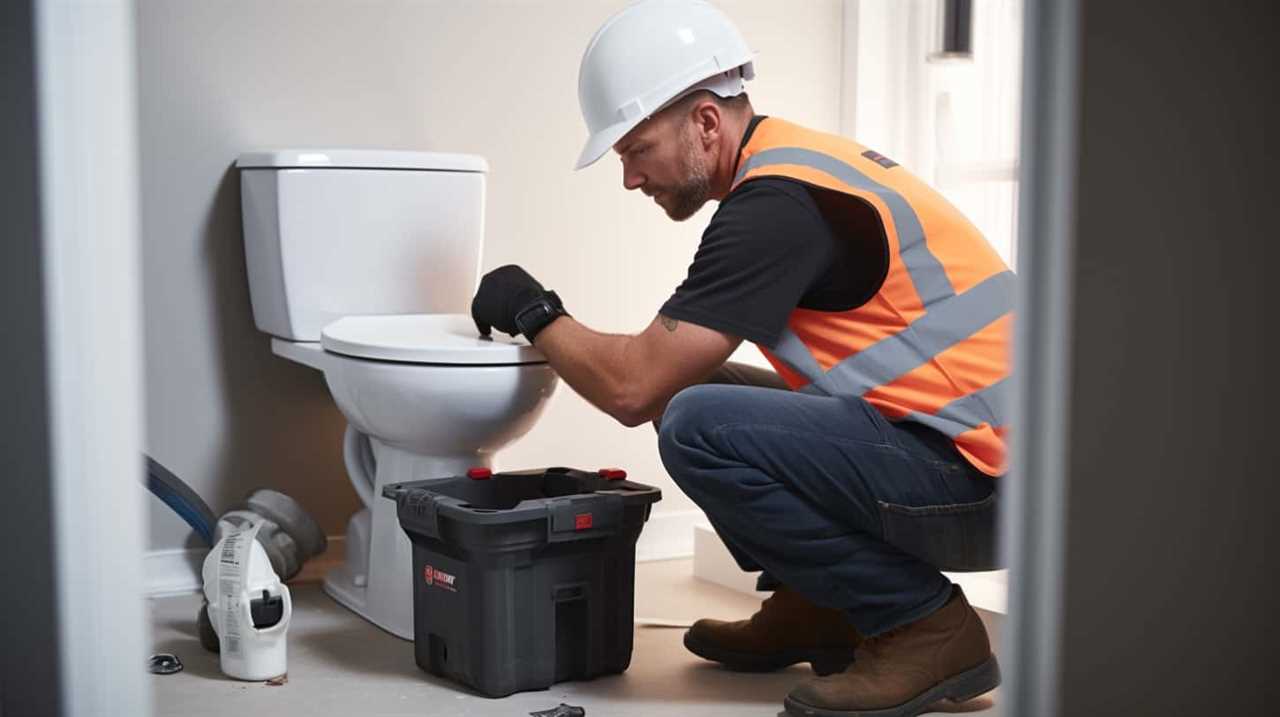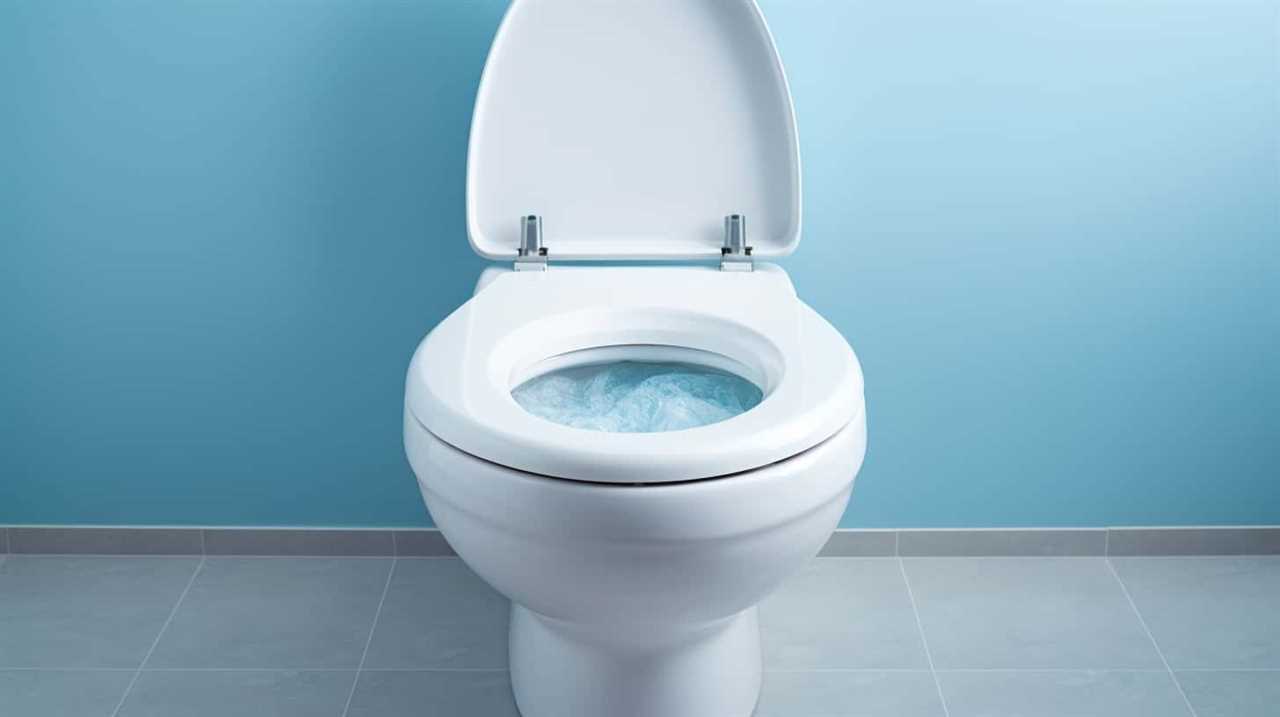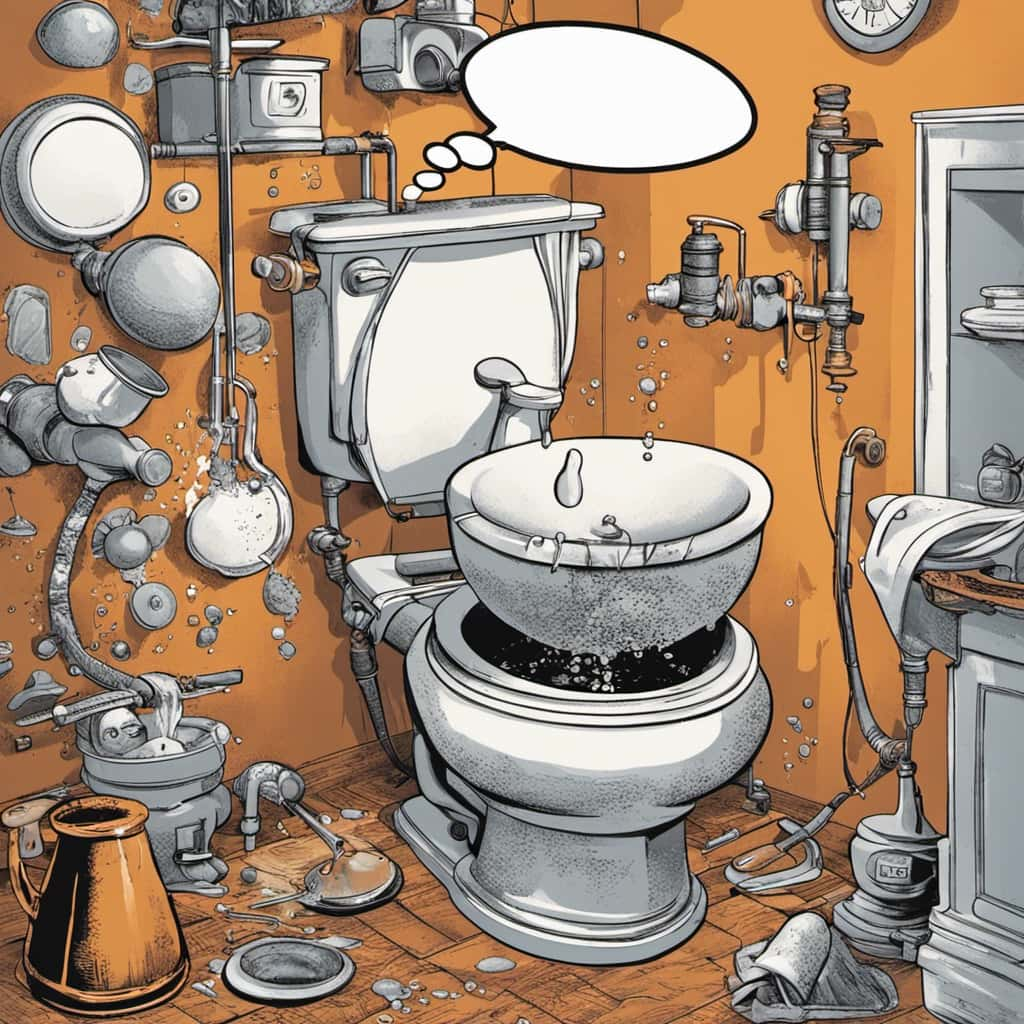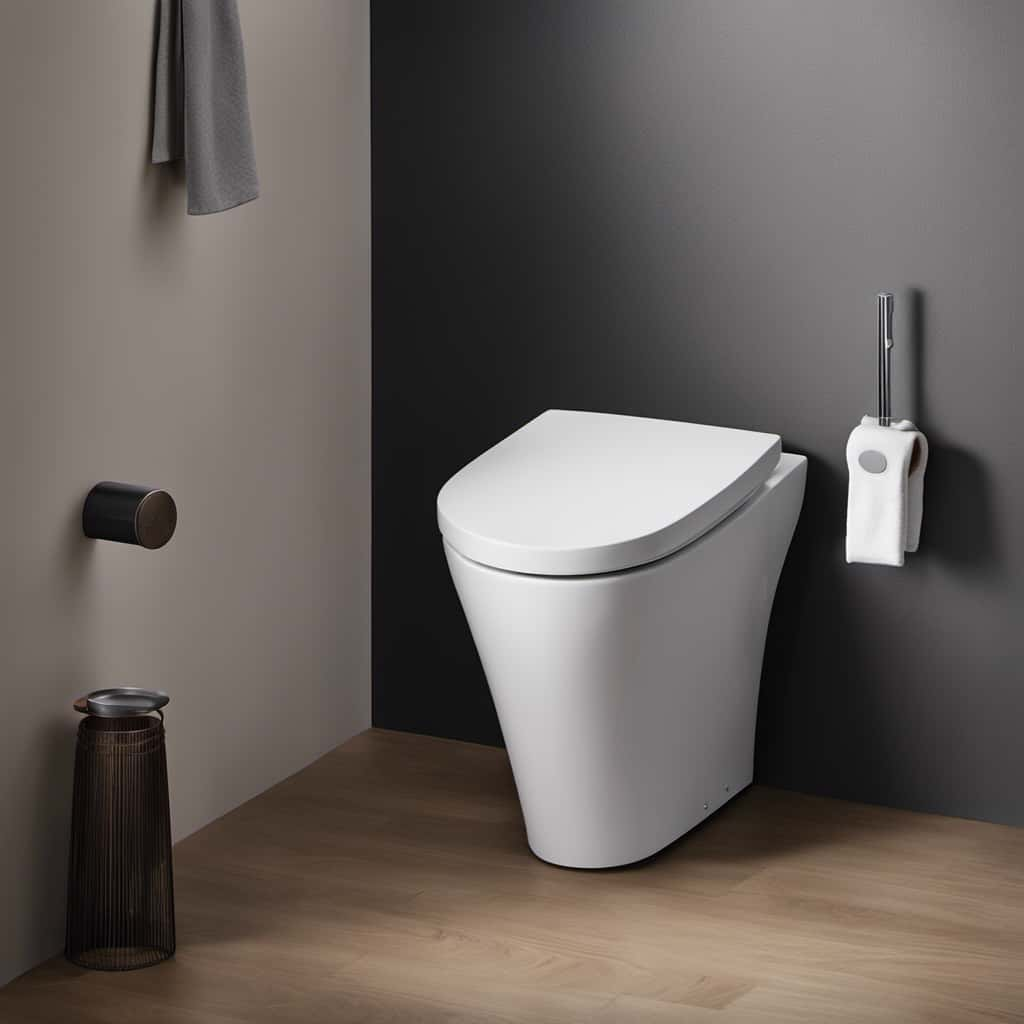Fed up with the foul smell and hassle of cleaning up dog poop? You’re not alone. However, don’t worry! We have a safe solution for dissolving dog poop.
In this article, we will guide you through the process step by step, offering natural solutions and tips for maintaining a clean yard.
Say goodbye to the hassle and hello to a hygienic environment. Get ready to master the art of dog poop disposal!
Key Takeaways
- Proper dog poop disposal is important for protecting the environment and preventing the spread of harmful bacteria and parasites.
- Improper disposal of dog waste can contaminate soil and water sources, polluting rivers, lakes, and oceans and posing health risks to humans.
- Using biodegradable poop bags and composting are eco-friendly disposal methods.
- Safe alternatives for dissolving dog poop include enzyme-based cleaners, natural bacteria and microorganisms, and vinegar and baking soda solutions.
Why Safe Dog Poop Disposal Matters
Safe dog poop disposal matters because it helps protect our environment and prevents the spread of harmful bacteria and parasites. Understanding the health risks associated with improper disposal of dog waste is crucial for maintaining a clean and safe environment for both humans and animals.

Dog feces can contain harmful pathogens such as E. coli, Salmonella, and parasites like roundworms and hookworms, which can pose serious health risks to humans and other animals if not properly disposed of.
To ensure safe disposal, it’s important to be aware of the legal regulations on dog poop disposal in your area. Many municipalities have specific rules and guidelines regarding the proper disposal of dog waste. These regulations often require pet owners to pick up their dog’s waste and dispose of it in designated waste bins or by bagging and placing it in the regular trash.
By adhering to these regulations and disposing of dog waste properly, we can help prevent the contamination of soil and water sources. When dog poop is left on the ground, rainwater can wash the waste into rivers, lakes, and streams, leading to water pollution and the potential spread of diseases. Proper disposal also helps keep public spaces clean and free from unpleasant odors and unsightly messes.
Understanding the Environmental Impact
To fully grasp the impact on the environment, we must delve into how dog waste dissolves safely. Understanding the environmental impact of dog poop disposal is crucial for those who are looking for eco-friendly methods.

Dog waste contains harmful bacteria and parasites that can contaminate soil and water sources if not disposed of properly. When dog poop is left on the ground, rainwater can wash the waste into storm drains and eventually into rivers, lakes, and oceans, polluting these water bodies. This can harm aquatic life and contribute to the growth of harmful algae blooms. Furthermore, dog waste left on lawns or in public areas can also pose a health risk to humans, especially children who may come into contact with it while playing.
To minimize the environmental impact of dog poop disposal, it’s important to choose eco-friendly methods. One of the most effective ways is to use biodegradable poop bags that break down naturally over time. These bags are made from materials like cornstarch or plant-based plastics, which are environmentally friendly and don’t contribute to plastic pollution.
Another eco-friendly option is composting dog waste in dedicated compost bins. However, it’s important to note that the compost produced should only be used on non-edible plants and flowers, as dog waste may contain harmful bacteria that can make humans sick if ingested.
Choosing the Right Tools for Dog Poop Cleanup
For effective and efficient dog poop cleanup, we rely on the right tools. When it comes to choosing the tools for this task, it’s important to consider eco-friendly options and biodegradable alternatives. These tools not only help us clean up after our furry friends, but also minimize the impact on the environment.

One of the most commonly used eco-friendly tools is the biodegradable poop bag. Made from plant-based materials, these bags break down naturally over time, reducing plastic waste. They’re sturdy and leak-proof, ensuring a clean and hygienic cleanup process.
Another great tool is the pooper scooper. Look for scoopers made from recycled materials or those that are biodegradable. These scoopers are designed to pick up the poop without damaging the surrounding environment. They’re durable and easy to use, providing a convenient solution for dog owners.
In addition to bags and scoopers, there are also eco-friendly cleaning sprays available. These sprays are formulated with natural ingredients that are safe for both your pets and the environment. They effectively eliminate odors and disinfect the area, ensuring a clean and fresh space.
Step-by-Step Guide to Dissolve Dog Poop
Now let’s discuss the step-by-step guide to dissolve dog poop using eco-friendly disposal methods and safe chemical alternatives.

First, you’ll need to gather your supplies, including a shovel, gloves, and a sealable container.
Next, use the shovel to scoop up the dog poop and place it into the container.
Eco-Friendly Disposal Methods
We can dissolve dog poop safely using eco-friendly disposal methods.
When it comes to chemical-free solutions and eco-conscious waste management, there are a few options to consider.

One method is to use a pet waste digester, also known as a composting system. These systems use natural microbes to break down the waste, turning it into nutrient-rich soil.
Another option is to bury the waste in a designated area of your yard. Dig a hole at least 6 inches deep and bury the poop, ensuring that it’s covered with soil. This allows for natural decomposition over time.
Alternatively, you can use biodegradable poop bags, which are made from plant-based materials and break down naturally.
Remember to always check local regulations and guidelines for proper disposal methods in your area.

Safe Chemical Alternatives
To continue our discussion on eco-friendly disposal methods, let’s explore safe chemical alternatives for dissolving dog poop.
When it comes to dealing with dog waste, using safe chemical alternatives can be an effective and environmentally-friendly solution. Here are four safe chemical alternatives for dissolving dog poop:
- Enzyme-based cleaners: These cleaners contain natural enzymes that break down organic matter, including dog waste. They’re safe to use around pets and are effective in breaking down poop.
- Biodegradable poop bags: These bags are made from plant-based materials that can dissolve over time. They’re a convenient and eco-friendly way to dispose of dog waste.
- Composting: Composting dog waste is another safe and eco-friendly method. By combining dog poop with other organic materials like leaves and grass, you can create nutrient-rich compost for your garden.
- Septic-safe toilet additives: If you have a septic system, using septic-safe toilet additives can help break down dog waste and prevent clogs in your plumbing.
Natural Solutions for Dog Poop Dissolution
One of the most effective ways to safely dissolve dog poop is by using natural solutions. When it comes to eco-friendly alternatives, natural enzymatic cleaners are a great option. These cleaners contain enzymes that break down the organic matter in dog poop, making it easier to dissolve and eliminate. They’re specifically designed to target the proteins, fats, and carbohydrates present in feces, effectively breaking them down into smaller, more manageable particles.
Natural enzymatic cleaners work by speeding up the natural process of decomposition, which helps to reduce the odor and mess associated with dog waste. They’re safe to use and don’t contain any harsh chemicals that could harm the environment or your pet. Simply spray the cleaner directly onto the poop, allowing it to sit for a few minutes. Then, use a shovel or scoop to remove the dissolved waste and dispose of it properly.

Using biodegradable bags for disposal is another important step in the process of safely dissolving dog poop. These bags are designed to break down naturally over time, reducing the environmental impact of waste disposal. By using biodegradable bags, you can ensure that the waste is disposed of in an eco-friendly manner, without contributing to landfill waste.
Using Biodegradable Bags for Disposal
To ensure environmentally friendly waste disposal, it’s essential to utilize biodegradable bags when disposing of dog poop. These bags are designed to break down naturally over time, reducing the impact on the environment. Here are some important things to know about using biodegradable bags for dog poop disposal:
- Biodegradable bag alternatives: There are several options available in the market for biodegradable bags. Look for bags made from materials such as plant-based plastics, cornstarch, or compostable materials. These alternatives are designed to break down more easily compared to traditional plastic bags.
- Proper disposal techniques: When using biodegradable bags, it’s important to dispose of them correctly. Here’s how:
- Place the dog poop inside the bag and tie it securely.
- Check local regulations to determine the proper disposal method. Some areas may allow you to dispose of it in your regular trash bin, while others may require you to use designated dog waste bins or composting facilities.
- Avoid flushing the bag and its contents down the toilet, as it can cause plumbing issues and contribute to water pollution.
- Consider composting: If you have the means and space, consider composting your dog’s waste using a pet waste composter. These systems facilitate the breakdown of organic matter, including dog poop, into nutrient-rich compost that can be used in gardens or landscaping.
- Education and awareness: Spread the word about the importance of using biodegradable bags for dog poop disposal. Encourage other dog owners in your community to make the switch, as it can significantly reduce the environmental impact of pet waste.
Safe Disposal Methods for Dog Poop in Urban Areas
In urban areas, we utilize dog waste stations for the safe disposal of dog poop. These stations are strategically placed throughout the city, providing a convenient and responsible way for dog owners to dispose of their pet’s waste.
Dog waste stations typically consist of a trash can and a dispenser filled with biodegradable bags. These bags are designed to break down naturally over time, reducing the environmental impact of dog waste. By using biodegradable bags, we can minimize the amount of plastic waste that ends up in landfills.

When it comes to safe disposal methods for dog poop in urban areas, it’s important to remember that natural alternatives are also available. Some dog waste stations provide compost bins specifically for dog waste. This allows the waste to be broken down naturally and turned into nutrient-rich compost that can be used in gardens or landscaping.
By utilizing these safe disposal methods, we can ensure that dog poop is properly contained and disposed of in urban areas. This not only helps to keep our cities clean, but also minimizes the risk of spreading harmful bacteria and parasites.
With these methods in place, we can transition into the subsequent section about how to prevent dog poop odor in your yard.
How to Prevent Dog Poop Odor in Your Yard
To prevent dog poop odor in our yard, there are several effective methods we can employ.

First, we can focus on odor control by regularly removing and disposing of the waste.
Additionally, maintaining the yard through proper cleaning, mowing, and watering can help minimize odor.
Odor Control Methods
We employ various techniques to combat dog poop odor in our yard, ensuring a pleasant outdoor environment. Here are some effective methods to prevent dog poop odor:
- Odor Neutralizers: These products are specifically designed to eliminate unpleasant smells. They work by chemically neutralizing the odor molecules, rather than simply masking them. Look for odor neutralizers that are safe for outdoor use and specifically formulated for pet waste.
- Enzymatic Cleaners: These cleaners use enzymes to break down the organic matter and eliminate odor-causing bacteria. They’re particularly effective on dog poop stains and odors. Apply the enzymatic cleaner directly to the affected area and let it sit for the recommended time before rinsing or wiping away.
- Regular Scooping: The best way to prevent dog poop odor is to remove it promptly. Scoop your yard regularly, ideally once or twice a day, to keep the odor at bay.
- Proper Waste Disposal: Dispose of the dog poop properly to prevent lingering odors. Double-bag it in plastic bags and seal them tightly before placing them in a designated outdoor trash bin.
Yard Maintenance Tips
To prevent dog poop odor in our yard, we maintain a regular yard maintenance routine. One effective method is to promptly pick up the dog poop using biodegradable bags. This prevents the waste from decomposing and releasing unpleasant odors.

Additionally, we regularly mow the grass to keep it short and minimize the chances of poop getting stuck in the blades.
Another important aspect of yard maintenance is proper disposal. Instead of throwing dog poop in the regular trash, we opt for alternative disposal methods such as composting. Composting benefits the environment by turning the waste into nutrient-rich fertilizer for plants. By incorporating composting into our yard maintenance routine, we not only prevent odor but also contribute to sustainable gardening practices.
Now, let’s explore some natural odor remedies to further eliminate any lingering smells.
Natural Odor Remedies
In our yard maintenance routine, we frequently employ natural odor remedies to prevent dog poop odor. Natural odor control isn’t only effective but also safer for the environment and our pets.

Here are four homemade solutions that we’ve found to be highly effective in controlling dog poop odor in our yard:
- Baking Soda: Sprinkle baking soda directly on the affected area to absorb and neutralize odors. Leave it on for a few minutes before cleaning it up.
- Vinegar Solution: Mix equal parts of water and vinegar in a spray bottle. Spray the solution on the affected area and let it sit for a few minutes before rinsing it off.
- Citrus Peels: Place citrus peels, such as lemon or orange, around the yard. The natural oils in the peels help to mask unpleasant odors.
- Activated Charcoal: Put activated charcoal in a container and place it near the poop area. The charcoal will absorb the odor and keep the area smelling fresh.
The Dangers of Chemical-Based Poop Dissolvers
Chemical-based poop dissolvers pose significant risks to both our health and the environment. While they may seem convenient, it’s important to understand the potential dangers associated with using these products.
One of the main concerns is the health risks they can pose to humans and animals. Many chemical-based dissolvers contain harmful ingredients such as bleach, ammonia, and other toxic chemicals. These substances can cause skin irritation, respiratory problems, and even more serious health issues if ingested or inhaled.
Additionally, these chemicals can be harmful to the environment. When they’re rinsed down the drain or end up in water sources, they can contaminate our waterways, harming aquatic life and disrupting ecosystems.

Fortunately, there are safer alternatives to chemical-based dissolvers. Using natural and biodegradable options, such as enzyme-based cleaners or composting, can effectively break down dog poop without exposing ourselves or the environment to harmful chemicals.
It’s important to prioritize our health and the health of our planet by choosing chemical-free alternatives and being mindful of the potential health risks associated with chemical-based poop dissolvers.
DIY Dog Poop Dissolving Solutions
When it comes to dissolving dog poop safely, DIY solutions offer environmentally friendly options that are quick and effective.
One option is to use a vinegar and water solution, which breaks down the waste and neutralizes odors.

Another method is to use enzyme-based cleaners that contain natural enzymes to digest the poop.
Once the waste is dissolved, it’s important to practice safe disposal techniques, such as flushing it down the toilet or using compost bins specifically designed for pet waste.
Environmentally Friendly Options
For environmentally friendly options, we can safely dissolve dog poop using DIY solutions. Here are some biodegradable options and natural enzymatic solutions that can help:
- Vinegar and Water Solution:
Mix equal parts vinegar and water in a spray bottle and spray it directly on the dog poop. Let it sit for a few minutes, then use a pooper scooper or a bag to remove the dissolved waste. - Baking Soda and Water Paste:
Make a paste by mixing baking soda with water. Apply the paste to the dog poop and let it sit for about 15 minutes. Then, scrub the area with a brush and rinse it off with water. - Enzyme-based Pet Waste Dissolver:
Look for commercial products specifically designed to dissolve pet waste. These products contain natural enzymes that break down the waste, making it easier to clean up. - Composting:
If you have a backyard compost pile, you can add dog poop to it. Make sure to follow proper composting guidelines and avoid using the compost on edible plants.
Remember to always follow safety precautions, wear gloves, and clean the area thoroughly after dissolving dog poop.

Quick and Effective Methods
One effective method for dissolving dog poop quickly and efficiently is by using a vinegar and water solution. To create this solution, mix equal parts of white vinegar and water in a spray bottle.
Spray the solution directly onto the dog poop and let it sit for a few minutes. The acidity of the vinegar helps break down the poop, making it easier to dissolve.
After allowing the solution to work its magic, use a scoop or a bag to pick up the dissolved poop and dispose of it properly. This method is safe and effective, as vinegar is a natural disinfectant and doesn’t harm the environment.
It’s also a time-saving technique, as it requires minimal effort and ensures a quick cleanup.

Safe Disposal Techniques
To continue the discussion on dissolving dog poop safely, let’s explore some effective and environmentally-friendly DIY dog poop dissolving solutions.
Here are four eco-friendly alternatives for natural poop dissolution:
- Composting: Create a separate compost bin specifically for dog waste. Layer the waste with organic materials like leaves and sawdust. Make sure to maintain the right balance of carbon and nitrogen to facilitate decomposition.
- Biodegradable Bags and Enzymes: Use biodegradable poop bags and add enzyme-based solutions to break down the waste. These solutions contain natural bacteria that accelerate the decomposition process.
- Digester Systems: Install a dog waste digester system in your backyard. These systems use natural microorganisms to break down the waste. Simply deposit the waste into the digester, add water, and let nature do its work.
- Pet Waste Disposal Services: If DIY methods aren’t feasible, consider using pet waste disposal services that employ eco-friendly techniques to dissolve and dispose of dog poop safely.
Composting Dog Poop: Pros and Cons
Composting dog poop offers numerous benefits and drawbacks that we need to consider. On one hand, composting can be an environmentally friendly way to manage dog waste. It allows us to recycle the nutrients in the poop and create nutrient-rich soil for our gardens. Additionally, composting helps reduce the amount of waste that ends up in landfills, which can have negative environmental impacts. However, there are also challenges associated with composting dog poop. One of the main challenges is ensuring that the compost reaches the necessary temperature to kill any pathogens present in the poop. This requires monitoring the compost pile and ensuring proper aeration and moisture levels. Another challenge is the time it takes for dog poop to fully decompose, which can range from several months to over a year. This means that composting dog poop requires patience and dedication.
To better understand the benefits and challenges of composting dog poop, let’s take a look at the table below:

| Composting Benefits | Composting Challenges |
|---|---|
| Recycles nutrients | Pathogen control |
| Reduces landfill waste | Decomposition time |
| Creates nutrient-rich soil | Monitoring and maintenance |
As you can see, composting dog poop has its advantages, such as recycling nutrients and reducing landfill waste. However, it also comes with challenges, such as ensuring pathogen control and managing decomposition time. By weighing these pros and cons, you can make an informed decision on whether composting dog poop is the right choice for you.
The Role of Bacteria in Poop Decomposition
Bacteria play a crucial role in the decomposition of poop, breaking it down over time. Here’s a breakdown of how bacteria contribute to the poop decomposition process:
- Initial breakdown: Bacteria start the decomposition process by breaking down complex organic compounds in the poop into simpler forms. This initial breakdown makes it easier for other organisms to continue the decomposition process.
- Release of enzymes: Bacteria release enzymes that help break down the poop further. These enzymes help break down proteins, fats, and carbohydrates present in the feces, turning them into smaller molecules.
- Nutrient recycling: As the bacteria break down the poop, they also release essential nutrients, such as nitrogen and phosphorus, back into the environment. These nutrients can then be used by plants and other organisms.
- Biodegradation: Bacteria help biodegrade the poop by consuming the organic matter and converting it into simpler compounds. This process reduces the volume of the poop and helps in its eventual decomposition.
Understanding the role of bacteria in poop decomposition is essential when considering safe disposal methods. It highlights the importance of ensuring proper decomposition to prevent harmful bacteria from contaminating water bodies.
Safe Disposal of Dog Poop in Water Bodies
Let’s discuss how we can safely dispose of dog poop in water bodies. It’s important to understand that disposing of dog waste in water bodies can have serious environmental consequences. When dog poop enters water bodies, it can contaminate the water and contribute to water pollution. This pollution can harm aquatic ecosystems and pose risks to human health.

To prevent water pollution and ensure the safe disposal of dog poop in water bodies, there are a few options to consider. One option is to collect the dog waste using biodegradable bags and dispose of it in designated trash bins. Another option is to compost the dog poop, which not only prevents water pollution but also offers composting benefits. Composting dog waste can help create nutrient-rich soil that can be used in gardening and landscaping.
Here is a table summarizing the methods for safe disposal of dog poop in water bodies:
| Method | Description | Benefits |
|---|---|---|
| Bag and Bin | Collect dog waste in biodegradable bags and dispose of it in designated trash bins. | Prevents water pollution. |
| Composting | Compost dog poop to create nutrient-rich soil. | Prevents water pollution and offers composting benefits. |
Managing Dog Poop in Public Spaces
When managing dog poop in public spaces, we should prioritize proper disposal methods to maintain cleanliness and prevent environmental contamination. Here are some key considerations for managing dog waste in public areas:
- Pet waste stations: Installing pet waste stations in public parks is crucial for promoting responsible dog ownership. These stations typically consist of a dispenser with biodegradable waste bags and a trash can for disposal. They provide a convenient and hygienic way for dog owners to pick up and dispose of their pet’s waste.
- Education and awareness: It’s essential to educate dog owners about the importance of picking up after their pets in public spaces. Clear signage and informational campaigns can help raise awareness and encourage responsible behavior.
- Regular maintenance: Public spaces, such as parks and sidewalks, should be regularly inspected and cleaned to ensure they remain free of dog waste. Waste management teams can be assigned to clean up these areas regularly, minimizing the risk of contamination and unpleasant odors.
- Managing dog waste in apartment complexes: Apartment complexes with pet-friendly policies should provide designated areas for dog waste disposal. This can include designated dog walking areas with waste stations or even dedicated dog parks within the premises.
Tips for Maintaining a Clean and Hygienic Yard
To maintain a clean and hygienic yard, we should prioritize proper disposal methods and regular cleaning. Yard maintenance is essential not only for aesthetic purposes but also for preventing odor and promoting a healthy environment for both humans and pets. Here are some tips to help you keep your yard clean and odor-free:

| Yard Maintenance | Preventing Odor |
|---|---|
| Regularly scoop up pet waste and dispose of it properly. | Use a pet waste odor neutralizer to eliminate any lingering smells. |
| Trim and maintain your lawn to prevent overgrowth and create a clean appearance. | Avoid leaving food or garbage in your yard, as it attracts pests and can contribute to odor. |
| Rake up leaves and debris regularly to prevent buildup. | Keep your yard well-ventilated to minimize odors from accumulating. |
| Clean outdoor pet areas, such as kennels or litter boxes, regularly to prevent odor. | Use natural odor-absorbing materials like baking soda or activated charcoal in problem areas. |
Frequently Asked Questions
What Are the Potential Dangers of Using Chemical-Based Poop Dissolvers?
Using chemical-based poop dissolvers can pose potential dangers. These products often contain harsh chemicals that can be harmful to both humans and the environment. DIY alternatives are a safer option, as they usually involve natural ingredients like vinegar or baking soda.
Chemical-based dissolvers can also have a negative environmental impact, as the chemicals can seep into the ground and contaminate water sources. It’s important to prioritize the safety of ourselves and our planet by opting for safer, eco-friendly alternatives.
Are There Any Natural or DIY Solutions for Dissolving Dog Poop?
Natural solutions for dissolving dog poop or DIY alternatives to chemical-based poop dissolvers can be effective and environmentally friendly.
We’ve found that many pet owners opt for methods such as using enzymes or vinegar to break down and neutralize the waste. These natural substances help to speed up the decomposition process, making it safer and less harmful to the environment.

Additionally, DIY solutions often require common household items, making them cost-effective and easily accessible for pet owners seeking a safe and efficient way to dissolve dog poop.
Can Dog Poop Be Composted? What Are the Pros and Cons?
Composting dog poop can be a viable alternative disposal method. It has its pros and cons.
On one hand, composting can break down the poop and turn it into nutrient-rich soil that can be used for gardening. This reduces waste and helps the environment.
However, it’s important to follow proper guidelines to ensure the compost is safe for use. Contamination and the potential for harmful pathogens are some of the cons that need to be considered.

How Can Dog Poop Be Safely Disposed of in Water Bodies?
When it comes to safely disposing of dog poop in water bodies, there are sustainable alternatives that can minimize the environmental impact.
It’s important to remember that dog waste contains harmful bacteria and parasites that can pose a threat to aquatic ecosystems. By using biodegradable bags and disposing of them in designated waste bins, we can help prevent contamination of water bodies.
Additionally, there are specialized pet waste composting systems available that can break down dog poop safely and effectively.
What Are Some Tips for Maintaining a Clean and Hygienic Yard in Regards to Dog Poop?
Maintaining Yard Cleanliness and ensuring a hygienic yard is essential when it comes to dealing with dog poop.

Here are some helpful tips for yard maintenance.
Firstly, regularly pick up and dispose of dog poop in sealed bags.
Secondly, consider using designated areas or installing a dog waste station with waste bags.
Thirdly, regularly clean and sanitize the yard to prevent the spread of bacteria.

Lastly, encourage proper training and regular bathroom breaks to minimize accidents.
Following these tips will help keep your yard clean and safe for everyone.
Conclusion
In conclusion, it’s crucial to dispose of dog poop safely to protect the environment and public health.
By understanding the environmental impact and choosing the right tools for cleanup, we can effectively dissolve dog poop. Using natural solutions and promoting bacteria decomposition can aid in the safe disposal of dog poop.

Additionally, managing dog poop in public spaces and maintaining a clean yard are essential for a hygienic environment. Remember, ‘A clean yard is a happy yard.’










